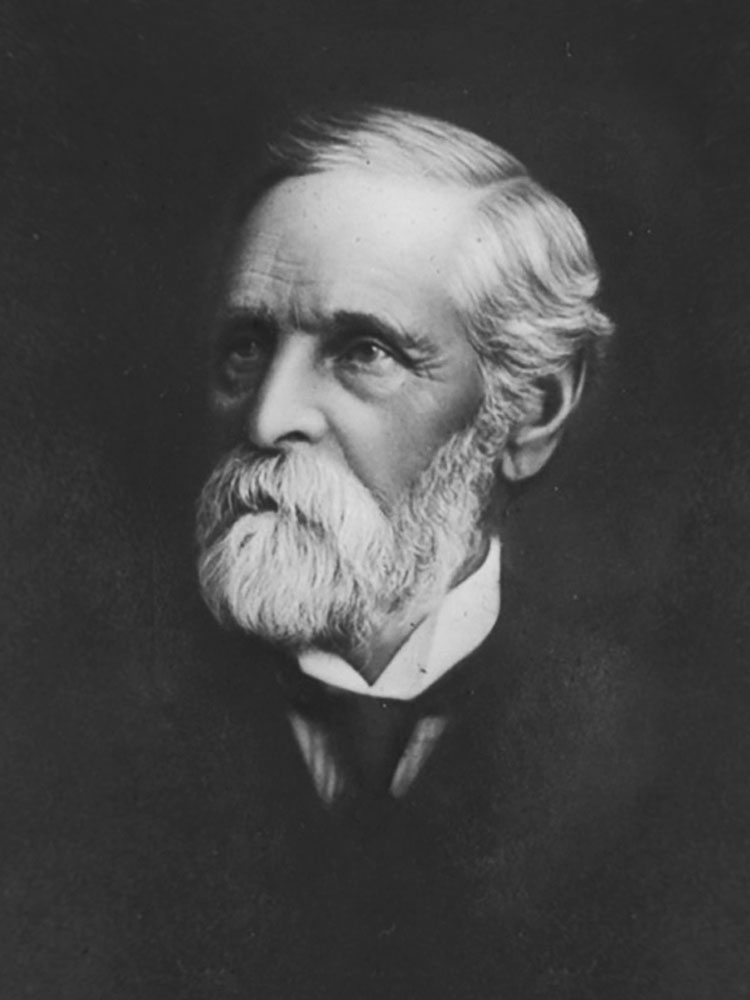Allen R. Benton

Chancellorship Dates
September 6, 1871 - July 1, 1876
Degrees
- B.A., Bethany College, Virginia (now W Va.)
- Postgraduate Studies, Rochester University
Born
October 1, 1822 - Cayuga County, New YorkDied
January 1, 1914 - Lincoln, NebraskaInterment
Crown Hill Cemetery, Indianapolis, Indiana, Jan. 5, 1914; Sec: 5, Lot: 30Artifacts
Sources
- "Chancellor Allen R Benton Comes to Nebraska," Robert N Manley, Nebraska State Historical Society
- "Prairie University," Robert E. Knoll
Allen R. Benton served as the first chancellor of the University of Nebraska. He arrived in Nebraska in May 1871 after serving as a professor and president at Northwestern Christian University (now Butler University) in Indianapolis and as president at Mount Union College in Ohio. He began his duties as leader of the new university on June 1, and was formally inaugurated as chancellor on Sept. 6.
At Nebraska, Benton was responsible for equipping the first building, University Hall, as well as planning the original four-block campus layout bounded by 10th, 12th, R and T Streets.
Remarkably, Benton significantly shapes the University of Nebraska to this day. He was responsible for purchasing Moses Culver’s half-section along Holdrege Street (at $55 per acre) and moving the original College Farm to that location – we know it today as East Campus.
During his tenure, Benton made many trips across the state, delivering speeches and acting as a tireless recruiter and promoter of the university. He created the university seal while on one of these lengthy train journeys.
Despite the Morrill Act’s emphasis on “useful arts,” Benton, a Christian minister, designed the infant university’s curriculum around a Classical theme laden with ancient languages and mathematics. Perhaps as a response to the fairly narrow curriculum, the student body quickly set about the work of forming the University’s great literary societies. Even in these earliest days of the university, members of the Palladian Society—and its later rivals, the Adelphian, University Union and Delian societies—would gather for broad and inquisitive programs of essay, oration, recitation and debate.
Benton resigned in 1876 during a period of distress for the state and university brought on by a plague of grasshoppers. He returned to Northwestern Christian (Butler) University, but his affections for Nebraska were lifelong, and he returned to Lincoln to live out his final years. On the first day of 1914 at the age of 91, Benton died in Lincoln – the city shaped by the major accomplishment of his life, a bustling university situated just north of the business district and at its agricultural campus on the eastern edge of town.